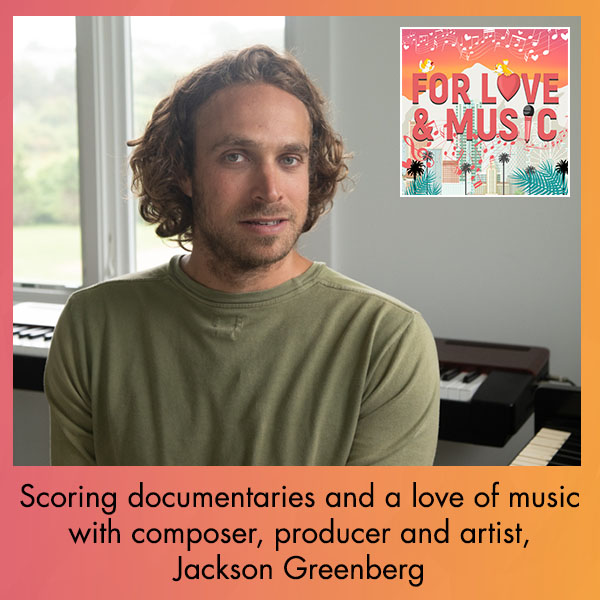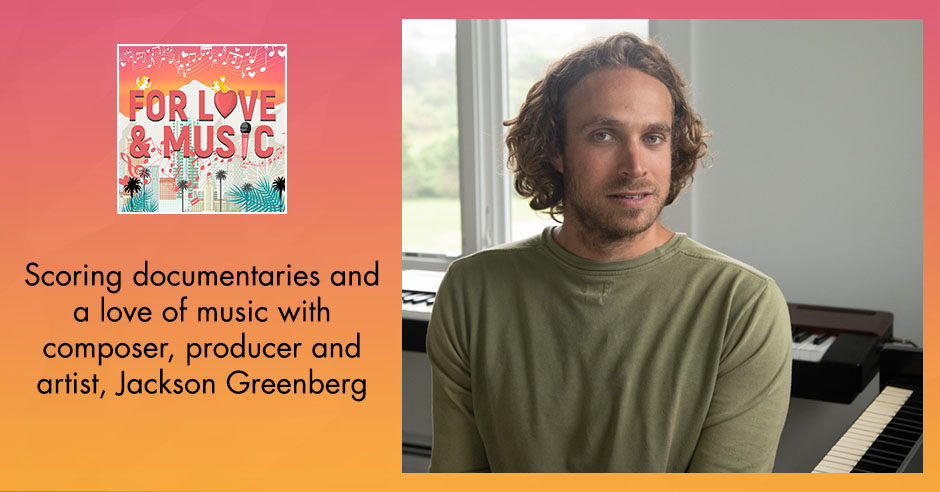
Jackson Greenberg, a Los Angeles based artist, composer, and producer, honed his craft working on such documentaries as AKA Jane Roe and the Emmy Award-winning Cartel Land, each time creating a whole new musical language that speaks to that particular story. He also famously composed the theme song for Netflix’s Explained series. Apart from composing for documentaries, Jackson spends his time composing and producing his original music through his own label, Voice Notes. Join us as he shares his story with Tara Joseph on For Love And Music.
—
Listen to the podcast here:
Scoring documentaries and a love of music with composer, producer and artist, Jackson Greenberg
I love having talented guests onto the show and this episode is a real gift. I’m honored to welcome to the show, artist, producer, and composer, Jackson Greenberg. Jackson, how are you?
I’m doing okay. Thanks for having me.
It’s a pleasure. I like to ask everyone at the beginning of the show, where are you?
I’m in Glassell Park, LA, in my studio.
It looks like you’ve got a great set up behind you.
There are some instruments that are out on loan to a couple of friends of mine. It’s a great room. I’m happy to be here.
We find ourselves in an unusual and quite challenging time where we’ve been on isolation for weeks and weeks. That started to lift a little bit. As a composer, you’re generally in isolation anyway. How has forced isolation changed any of what you do? Hasn’t it? I would love to know.
It hasn’t changed too much. I share my studio space with a good friend of mine, another composer musician who I’ve known since college. We’ve created our little pod of being able to interact with each other every day. I would say most musicians I record with like recording for me in their home studios. Other than going home from the studio and not being able to go out and decompress at a bar or at a restaurant or something, it stayed similar in that regard. Less directors are coming to the studio to sit in on sessions, which has presented its type of challenges in terms of the way that they’re hearing the music. Other than that, it’s been similar.
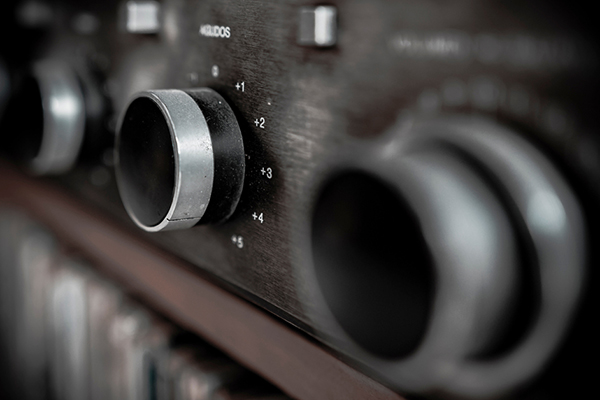
Have you found that your workload is as much as it would normally be?
I had a bunch of projects scheduled and then it started to get a little wonky. I’ve been fortunate that my work has continued. The stress of anything is projecting out into the future of my schedule. I’m trying to not think about that time period too much and be grateful that I’m still working.
When I introduced you, I introduced you as an artist, producer, and a composer. Which of those three would you say is your biggest love?
It’s somewhere between artist and composer. Producing other artists, I thought when I first moved to LA, was going to be a bigger part of my career. The way that it’s worked out is I produce some people, but generally, they’re friends of mine who I enjoy being in the studio with. I would say probably composer at the end of the day. Even when I’m writing music for myself, I try and find inspiration from some visual. Working on a good film and trying to put music to film, I probably enjoy that more than making music for myself.
Are you a multi-instrumentalist?
I am. I play the piano and drums and I sing. Mallet percussion was a passion and specialty of mine for a long time. I try and play as much as I can on my scores. There are a lot of instruments I love to write for and use that I don’t play. For those, it’s great to collaborate with local musicians who a lot of them have become good friends.
Looking at your amazing bio, I’ve learned a lot about you. Starting at the beginning, you went to Princeton, and then you went to the USC Thornton School of Music. It doesn’t get much bigger and better than that, does it? That must have been an experience in itself, those schools.
They’re both different in the way that they teach music. That was interesting. Growing up in Philadelphia, the idea of becoming a film composer was confusing. Right from the beginning at Princeton, I was like, “I need to go to a film scoring graduate school if this is what I want to do.” I was headed in that direction as opposed to some friends that grew up in LA and no family or friends who are composers like you. Eventually, you learn that there are many different paths into the profession. It was interesting because the schools were different in terms of their approach to composition.
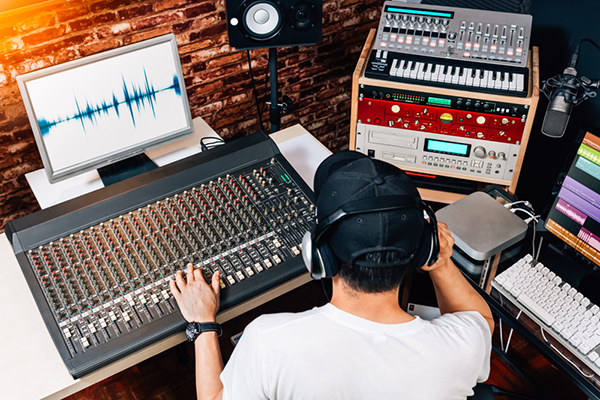
Taking what you’ve learned from both schools, and for the readers out there who may want to get into composing, producing, etc., how do you go about the process? When you’re presented with a project, do you see some of the footage first? Are you given the script? How does it work? We’ll talk about some of the great schools that you’ve created.
It changes at every point in your career. I read about Hans Zimmer and how he starts working with Chris Nolan right off the script. For the most part, I was fortunate to attend a Howard Shore masterclass when I was nineteen. He said that he watches a movie without any music and then he goes away for up to a week and tries to write music that captures the emotions or the feelings that he felt during the process. That’s always my first step. I watch the movie or watch a few scenes or a rough cut and generally, I request that I do so without any temp music.
I go into my studio and write away from the picture, so the entirety of my attention and my emotional attention is focused at least at the beginning of the process on the music. I’m not distracted by trying to see, “Does this piece of music work with this scene?” I try and remove all limitations on the process and allow myself to be as creative and free as possible. The further along you get into the film, the more limitations are put on you by deadlines and by the opinions of the director. The beginning for me is my time for myself to have fun and be free and try and capture something musically that will sustain itself throughout the rest of the process.
Are you usually put on a time deadline? Do you have to deliver to a certain date? Do you have carte blanche to do it at your speed?
No, it’s always a time deadline. Even when it’s not, it becomes one. There are times when I’ve worked on a project where they say, “We have so much time. You can do whatever you want. Take your time.” At some point, that changes. Deadlines, I’ve gotten to appreciate them in some senses. There have definitely been some projects where they’ve created a lot of stress. I would say 99% of the time there’s a deadline. When there’s not, there becomes one at some point.
Your FX project, AKA Jane Roe. “It chronicles the deathbed confession of Norma McCorvey, an impoverished pre-choice woman who was paid and recruited by the religious right to be the poster woman for the anti-abortion movement. Working their way into her life to flip her and turn her into Jane Roe.” That in itself is an extraordinary story. How did you take that and create the score for such a powerful and disturbing piece of history?
Nick Sweeney, the director, was helpful in the sense that he kept insisting that we were telling a story of one woman as opposed to a generation of women or a history of a country. I became grounded in trying to tell her specific story. The story was interesting in terms of the ups and downs of her life in terms of the times when she was put in front of the national media versus the times where nobody wanted to talk to her. The more I allowed myself to focus on how she was feeling and trying to express those emotions, the easier the project became as opposed to trying to figure out how to musically capture the issues at large.
The nature of the story, the way that she was recruited by these people, it started to feel to me like some spy thriller. She had all of these secrets that she wasn’t telling. There was a lot of money being exchanged. There were tactics being used of moving into office spaces next to hers. It started to remind me of some older 1970s spy thriller books and movies. I found myself trying to write for that genre almost at times in the film, which was interesting to me and allowed me to explore some sounds like the vibraphone and different instruments that I haven’t gotten to use a lot in other projects.
It’s not every day that a project like that comes along. It must be an exciting process to be able to investigate further into how that works for you in a musical capacity. It’s fascinating.
Music connects us to things underneath the surface of life. Click To TweetEvery project is different in that regard. This one was especially interesting because there was so much secrecy around it. A big part of the film was this breaking news, this deathbed confession. I signed a lot of paperwork. I wasn’t allowed to talk about it. I was making all this music and working on this project and wasn’t able to express myself or discuss it with any of my friends or family. I try to approach every project from the perspective of creating a unique musical language. Of course, it doesn’t always happen. There’s a lot of crossover between the music. At least I can, from the beginning, try and give each film its own style, its own sound. Even if I don’t end up in that place, I feel good about the process that I took to get there.
When people go, “Yes, we would love Jackson Greenberg to do this,” do you think they come to you because they know that you have a specific sound? Why do you think people come to you specifically? Apart from the fact that you’re talented.
I’m not sure if there’s a specific sound that people are recognizing yet. When I have discussions with people that approach me and want to hire me, the biggest thing I hear is that I’ve been able to somehow make documentary films feel cinematic in a way that doesn’t feel like it’s pushing the audience to feel a certain thing. The biggest challenge for me in scoring documentaries is how we can make this feel special and important and make people feel sad or connect to them the material but not in a way that feels manipulative? That’s something that I’ve started to understand how to do. That’s why I’ve been able to get a lot of work in documentaries. At the same time, I’ve been releasing music. I’ve got other jobs where people take my scores from a documentary and put it on to a dramatic film. Maybe that’s a skillset that applies to both areas. That’s it for now, but who knows?
You’ve composed the original score for Emmy Award-winning Cartel Land, the theme song for Explained on Netflix. You are 1 of 6 fellows of the Sundance Institute. You went to the George Lucas Skywalker Ranch for that accolade. Is that right?
Yes. Every summer they invite six young and upcoming composers up to study with legends. Thomas Newman was there when I was there. That experience was incredible.
Tell us, what was it like? Is it huge? Is it like being in a Star Wars set?
No. I loaded up all my instruments into my car and I drove from LA up to San Francisco across the Bay Bridge and into Moran, and then I thought I was lost. All of a sudden, I was like, “This can’t be it,” and turned into this driveway. There’s a non-discreet security hood. I signed an NDA that I wouldn’t tell people about the work that was going on there. They were finishing the sound mix for Rian Johnson of Star Wars. It feels like a ranch. There’s a little inn and there’s cows, vineyards, hills, and a lot of good hiking trails hidden in these ranch-style homes or these IMAX-like mixing stages.
Was George Lucas in?
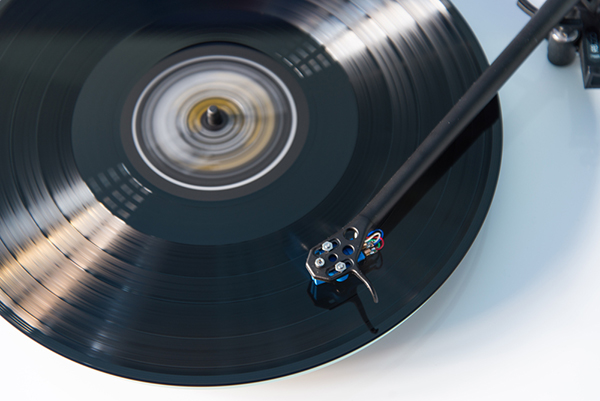
He wasn’t there but we were allowed to see the first floor of his house, which is a museum of old props and a library of old film books. The amount of talent that gets to go there every day to work, it felt surreal. In the sense that, here are these people that are doing sound effects for Steven Spielberg movies and Star Wars movies, and yet, they opened their windows and they’re looking out on this beautiful place every day. It definitely was inspiring in that sense of like, “Hopefully, we can get to a point where I’m able to work on these projects that I love in these beautiful environments.” It was definitely a bit of paradise for those two weeks.
It’s interesting that you mentioned beautiful environments because it makes all the difference in the world. I happen to have a view of a lot of greenery. I live in a canyon and every day when I wake up and I see that view, I feel lucky because it puts my head into a certain nature-orientated mindset. When you have that beauty around you, it helps you feel creative, and even if you don’t have it automatically around you, being able to go and find it. Living in LA, we’re both fortunate to be able to find it quite easily whether you go into the mountains or you go down to the beach. What I also love about LA coming from London is that you can ski in the morning and by the evening, you can be on the beach. It’s amazing. All of those elements within LA help you be creative because you come from Philadelphia, right?
Yes. In Philadelphia, we would go on camping trips and we would go skiing in the Poconos. It was great, but then I came to LA and I remember going into Joshua Tree and into Sequoia National Park, feeling like I was on a different planet and there’s no way for those things to not be inspiring. You’re like, “I thought we had beautiful nature on the East Coast,” and we certainly do but on the West Coast, it’s a different scale. It’s larger. There’s more space and it’s more unique looking. Those two places, in particular, Sequoia and Joshua Tree, have been important to me.
I can’t wait to go to Joshua Tree. I have a big birthday and that’s what I’m going to do.
That’s a great idea.
My show, as you know, is called For Love And Music, and I called it For Love And Music because those are the two reasons that I moved to LA. I like to throw in a little bit of love during the show. Nothing too personal. I like to find out, do you have a love song that has influenced you in your life or romantic song that stands out and resonates with you?
Yes, there’s a lot. It’s hard to choose. Growing up, my main musical influences were probably Gustav Mahler and opera. My grandfather, who lived in New York, was a huge opera fan. On the other side, my mom grew up in Detroit and Motown, so I don’t know. If I think about my career, I think about, “I’m doing film scoring and writing classical, romantic pieces in that sense. I’m also doing some pop production, like the Explained theme song and working with other people.” It’s all that stuff that I was exposed to as a kid, but if I had to pick specifically, Cigarettes and Coffee by Otis Redding and any Adagio from Gustav Mahler’s symphonies from the 9 to the 6. Anyone with slow movements to me is incredibly romantic.
Maybe the oldest running song is romantic in the sense that we all think about in terms of evoking late nights and early mornings with a partner. For me, the Mahler is romantic in the sense that it’s able to capture those things about life that are hard to talk about, whether it’s birth or death or family or loss or love in a way that makes you feel connected to the rest of the world. It is one of the main reasons that I’m in music in the first place. I’m searching for that feeling of the things that are underneath the surface of life. Music is one of the ways that I’ve found to connect to those feelings.
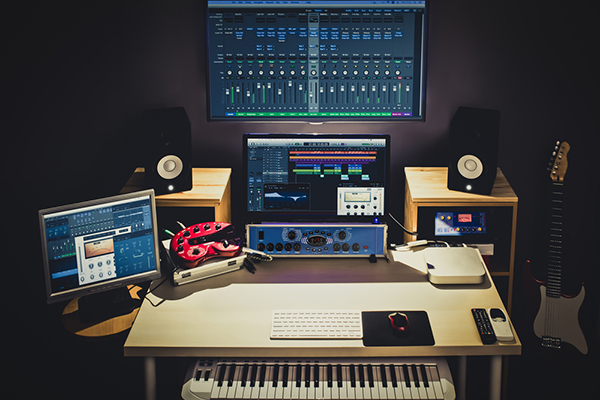
I understand what you’re saying, which leads me to my next question. Has love ever helped you make an unexpected decision in your career?
Yes. It’s helped me make a couple of unexpected decisions. One of them I’m thinking about is romantic and one is the different kinds of love. The one that was romantic was that I was in a relationship with an actress who was working out of state for a while. She was working in New Mexico in these beautiful environments. One of the ways that we ended up communicating was I would just send her these little piano pieces that I was recording on my iPhone for her to relax in between her shoes and walk around in the desert and listen to. I completely forgot about those pieces and then I was going through my iPhone looking for something else and rediscovered them.
I had such an emotional connection to those pieces because of the time in my life that they symbolized. I uncovered all of these other pieces that were similar in that sense of I had been on vacation in the house we were renting. I had a piano. All these things that I had recorded on my iPhone came together to tell this story of my travels in my life and my romances in a way that made perfect sense to me. The hope is that it tells a story to other people about their own lives. I gathered them into a collection and it is coming out on my record label in a way that it’s rare that I write music, away from film that I feel confident to release. It’s because of the emotional connection that this has, I’ve decided to put it out into the world.
I love that you’ve clearly had such a big For Love and Music moment. You’ve also shared with us that we’ll be able to hear some of the emotions through your music that you’re releasing. Tell me about the label. Where do we hear this music? I’m going to be imagining loads of different things.
It’s interesting because all the pieces were recorded on my iPhone. I call them record voice notes because that’s what it’s called on the iPhone app. It’s over the course of three years and I took the music. With this wonderful friend and engineer, Chris Sorem who does a lot of work for Rufus Wainwright and other musicians, we were able to take the audio recordings of the iPhone, which are not super high fidelity and run them through some equipment to make them sound interesting. That record will be coming on Spotify and Apple Music. There’ll be a limited edition vinyl pressing that will be available on my website and all those good things. I’m excited to share that with the world. There’ll be a companion video piece that I’m working on, which is eight-millimeter videos from my dad’s childhood. It’s that cross-pollination of like, “These pieces are from my iPhone about my life.” For some reason, because I’m a film composer, when I randomly was listening to them as my dad was sending me this footage that he had found, it felt like it went together well. Both in practice and in the idea of how these things were recorded.
What’s your website so that we’ve got all the information to go and find all of this amazing stuff?
It’s JacksonGreenberg.com and my email is on there. All the projects that I’ve worked on for film and TV are there as well as my independent releases. If anybody’s interested, the vinyls are there from that piece and also from a piece I recorded with the Slovakian National Orchestra. There’s a lot of good stuff on there and it’s easy to get in touch with me or my agent. I’m always happy to interact with different people.
Thank you for sharing that with us. One last question. Where would you like to be in a couple of years’ time out of forced isolation?
In terms of my career?
Yes. Musically, personally, or whatever. However, you would like to answer the question.
The biggest challenge in scoring documentaries is making people feel connected to the material in a way that doesn’t feel manipulative. Click To TweetWhen I moved to LA, I was interested in working on giant movies and getting my name out there and having as many people as possible to listen to my music. With years of experience, the things that I’m interested in are working with other interesting, kind, and smart people. To be fully transparent, I would love to work on more film and TV outside of the documentary world. I hope that in those pursuits and endeavors, the type of directors and artists that I get to work with are as interesting and good humans as the ones that I have already worked with.
Are there any directors out there who you would be like, “I would absolutely love to work with him or her. I’m here.”
It’s maybe a cheating answer, but a good friend of mine is a director named Nia DaCosta, who wrote and directed an amazing film called Little Woods and her next film is the remake/sequel to Candyman, which was Jordan Peele. Her and I met at the Sundance labs and became good friends. We’re not sure about the project, but we’ve been talking about some intimate science fiction romance film. That is exactly what I’m describing. Being able to work with someone you have a relationship with that there’s trust and compassion, and also, you’re pushing each other to do better work than you’ve ever done before. That would be a dream of mine to work with her.
I’m going to keep everything crossed that that happens for you and I’m sure that it will. Thank you for being a truly fabulous guest. Stay safe and healthy during these challenging times and I wish you all the best for the future. Thank you.
Thank you for having me. It’s been great talking to you.
Pleasure. To all the For Love and Music readers out there, you’ll be hearing from me again soon. Thanks. Stay safe all.
Important Links:
- Jackson Greenberg
- Sundance Institute
- JacksonGreenberg.com
- https://www.Instagram.com/jacksongreenberggg/?hl=en
About Jackson Greenberg
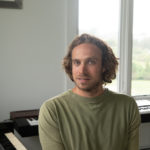 Jackson Greenberg (as of May 19th, 2020) is a Philadelphia born and raised, Los Angeles based artist, composer, and producer. Jackson studied music composition at Princeton University and The University of southern California ThorntonSchool of Music, graduating both programs with high honors. After moving to Los Angeles, Jackson’s first job was assisting composer Randy Newman and Jackson’s first original film score was for the Oscar and Emmy-nominated and Emmy Award-winning DocumentaryCartel Land. Jackson’s work has been featured heavily in many television series including the acclaimed theme song for the Explained series on Netflix which went viral with over 2 million streams.
Jackson Greenberg (as of May 19th, 2020) is a Philadelphia born and raised, Los Angeles based artist, composer, and producer. Jackson studied music composition at Princeton University and The University of southern California ThorntonSchool of Music, graduating both programs with high honors. After moving to Los Angeles, Jackson’s first job was assisting composer Randy Newman and Jackson’s first original film score was for the Oscar and Emmy-nominated and Emmy Award-winning DocumentaryCartel Land. Jackson’s work has been featured heavily in many television series including the acclaimed theme song for the Explained series on Netflix which went viral with over 2 million streams.
In addition to having multiple projects at the Sundance film festival over the last decade, in 2017 he was named one of six fellows at the Sundance Institute for FilmComposition at George Lucas’ California based Skywalker Ranch. His most recent film work can be seen in AKA Jane Roe, FX Network’s first foray into documentary feature films, two biopics for musicians DMX and Mary J Blige (Amazon), NFL Film’sMaybe Next Year, as well as Netflix Features’ Audible and their hit dating docu-series Dating Around. In addition to his work for multimedia, Jackson’s original music has been performed and recorded by symphonies around the world (First Light, Slovakian National Symphony Orchestra, Ravello records 2020), he’s produced and written for major label recording artists such as BayLedges and TOMI, and continues to release his own music through his own label (Voice Notes2017-2019,2020).

